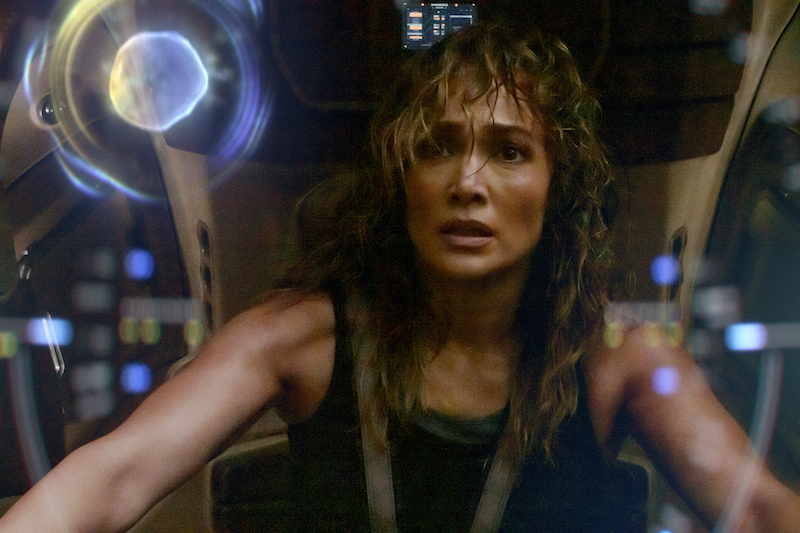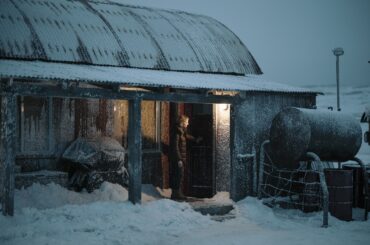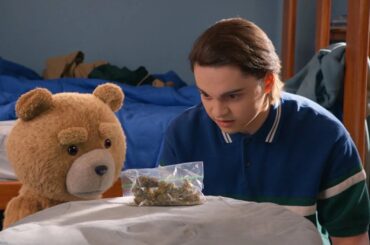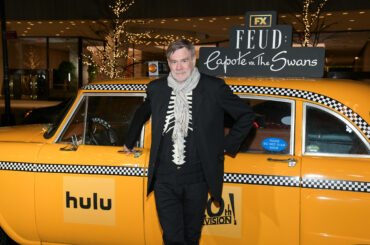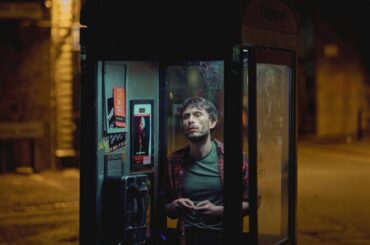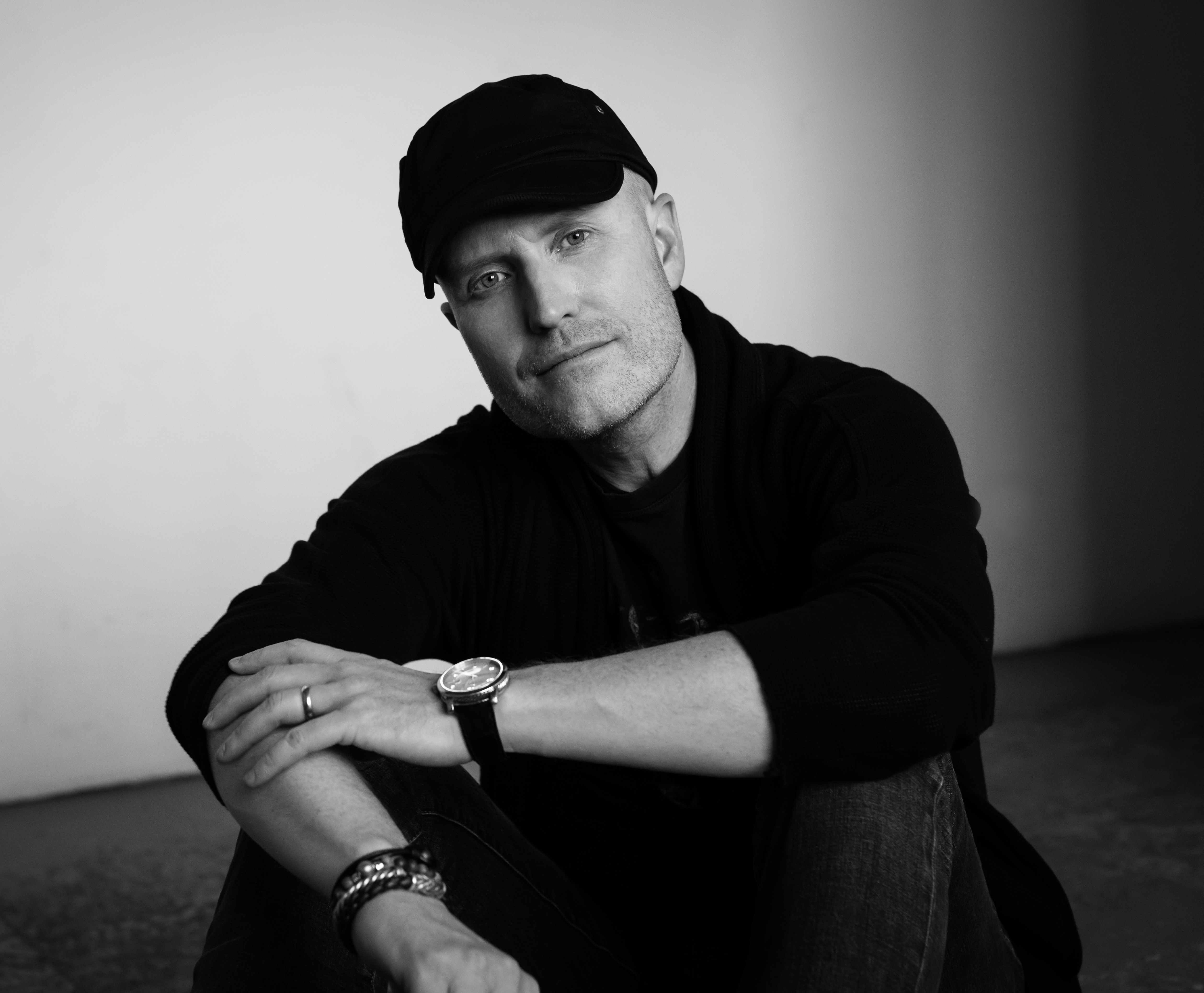
Andrew Lockington is director Brad Peyton‘s go-to composer. The duo met on Journey 2: The Mysterious Island. It was an instant creative match. Since then, Lockington has scored Skyscraper, Rampage, San Andreas, and Incarnate. Now, he adds Peyton’s Atlas to his resume.
For the Jennifer Lopez-led sci-fi film, Lockington balances humanity and tech in his score, strings and electric. A fitting choice that the composer sometimes takes in unexpected directions, especially in the third act of the human vs. artificial intelligence tale.
The Atlas composer, who also works on The Mayor of Kingstown and Lioness, recently spoke with Immersive Media about his approach to blockbuster-sized scores and why he doesn’t always want to tell the exact story happening right in front of you.
With film, there’s finite amount of time to tell a story, but with television, you have so much more space. How do the two mediums compare for you?
I like them both for different reasons. I both love and hate the truncated schedule on TV. It’s really nice to just make a decision and no one can come back and reanalyze and think about it for eight months, which sometimes happens on big movies, but by the same token, you don’t have the time to make choices and run with it. You don’t have the time to explore 15 different theme ideas. So yeah, they’re both good and bad for their own reasons.
By now though, you have a pretty good sense of how to make a big sound, a blockbuster sound, especially with Brad. For Atlas, how’d you want to continue to refine or explore that sound?
I think that the trick is trying to do it differently every time. Trying to have some unique elements so that each score has some new ground that you can traverse without revisiting things you’ve done. For me, the most frustrating thing is when a film temps something I’ve done before and says, “We really like this, do this,” and then it’s like, “I can’t do that again. I already did it.” So you’re always trying to find something new that you can go outside your box on each project and make your box bigger, so to speak. Do something different that maybe wasn’t in your wheelhouse before.
There are some good unexpected choices in your Atlas score. I really liked the use of piano in the third act when all the chaos is happening. How’d you land at that choice?
It’s funny, that was sort of the placeholder until I could come up with something better and then it just sort of stayed and survived. So, there’s something really human about a piano. I don’t know why. I don’t know if it’s because the only time we hear that sound, somebody has to physically sit there and press notes. But there’s also something cool in the fact that it’s a percussive instrument, so the sound is always decaying. You make the sound and it echoes away. You can’t swell with it.
You’re limited in how emotive you can be with it, which I like that you’re sort of have one hand tied behind your back as you’re trying to conduct kind of thing. So yeah, it ended up working, especially at the end with Smith. I really liked how that came out when the two of them are having that final conversation.
With these movies you guys make, there are so many moving pieces, especially with just the sound department. What is your collaboration usually with the sound editors and mixers?
Number one, we have a great editor. We had the same editor on San Andreas and Rampage, Bob Dee. When he edits, he’s putting his vision together as much with the soundscape as he is visually. He’s very involved in what he imagines happening and what he imagines leading, whether it’s music or sound effects.
He’s open to be challenged. A lot of times I’ll go and say, “Hey, I know you did this. I’m thinking this.” He’s a great collaborator in that way. And then Per Hallberg, who was the sound supervisor, Oscar-winning, very multiple Oscar-nominated Per Hallberg, he’s a really good friend. We get together, we watch the film together before the director’s cut is done. We talk while they’re filming. We’re constantly sending each other files back and forth, and a lot of my choices are influenced by what he says he’ll be doing.
So for example, woodwinds, when I would use woodwinds or piano, he’d be telling me, “Oh, I’ve got all this low end stuff going on. There’s Planet Tectonic movement, there’s this technology, this arc suit sounds going on, and they’re all in this register.” And I go, “Okay, great. I can exist in this register.”
When we get to the dub stage, there are no surprises. I know what he was doing and he knows what I was doing, and any discussions have already happened. So yeah, it’s amazing when you have that kind of collaboration. Brad really trusts us to go talk about it and figure it out and we kind of come up with a plan and then we go to Brad and say, “This is what we’re thinking.”
When you started scoring these big movies, what questions did you ask your collaborators you don’t need to ask anymore?
So, that’s really funny. Anytime I think, oh, okay, I got this now and I instinctively know, then I’ll say to Brad, “Yeah, I’m doing this because of this.” And he’s like, “Yeah, that’s not what’s happening at all.” He’ll describe this whole scene that I’ve misinterpreted based on the stick figures moving and the previs that I’m seeing. So, the challenges are the same.
Brad will sit there and he’ll describe a scene to me, and it’s so different than what I’m seeing on the QuickTime on the working version of picture. So, it’s a lot of trust and having to pivot as things come in. A shot that was supposed to be 12 seconds is now four, and you’ve got a 12 second phrase that now has to be reinvented.
I have a really good music editor, Joe Bon, who’s worked with Bob and myself many times, and it’s kind of planning ahead and we’ll have a conversation and say, “If this happens, even after we’ve scored, if this happens, we do this. If this happens, we do this.” We’re trying to figure out different solutions for potential scenarios. We still get thrown surprises, but for the most part, we’ve kind of figured out how to score it and record it in such a way that he has the pieces he needs. Together, we can kind of put the Humpty Dumpty back together.
With a third act especially, how much do you think about James Horner’s work?
Yeah, it’s funny, the James Horner scores that I love, Glory, but I also loved The Devil’s Own, actually, I really like that score. There’s a certain language. I think the Journey sequel probably paid homage to those kinds of films more than anything Brad has done. But filmmaking and scoring has evolved so much that you really can’t show up in the batter’s box with the same moves as you used to. You have to kind of reinvent.
Obviously, the orchestral and sometimes choir, those parts are standard chess pieces, but you have to come in with some new ideas because audiences are more sophisticated than they used to be. They don’t want to be manipulated in a two dimensional way. I think they want the score to tell you things that isn’t on screen. It does not just react to what’s there, but kind of tells the story in a parallel way. So yeah, I mean those composers definitely influenced my understanding of orchestra, but trying to take that and run with it, so to speak.
How do you think of the audience while composing without manipulating them? Is it a fine line sometimes?
It is. To me, it’s looking for a different approach. I’m just making up a theoretical hypothetical scene, but if someone sends me a clip of a whole bunch of people mourning at a funeral, my options as a composer are to write really sad music about how those people are feeling sad in the audience. The audience of the film will obviously associate that with being sad. But a more effective way is to write a theme that shows how beautiful that person was when they were alive. If it’s a tragedy and a child has passed away, write a beautiful little girl theme so that when we watch it, we feel the sadness as the audience instead of being told to feel sad, if that makes sense.
When you really think about it, the audience isn’t at a funeral. The people in the congregation aren’t thinking about how sad they are. They’re mourning the loss of how beautiful this person was, who’s now gone. As a composer, I want to make the audience feel something without telling something. Give them the catalyst to arrive at an emotion on their own. I think we got there with the final scene between Atlas and Smith.
You and Brad, you do work with some of the biggest onscreen personalities. What is the dance between you and, say, Jennifer Lopez or Dwayne Johnson? How do you look at your score being almost like a co-star to them?
I’ve never thought of it that way. That’s definitely a compliment. I think the score to Atlas is probably one of the most emotional scores, if not the most emotional score I’ve done for Brad film. You could only get there because of Jennifer. She feels and emotes so much.
I think the music can always accent and amplify what an actor is doing to a point. Or sometimes they can pull back if the actor’s gone too far, but it can never do too much. It breaks the scene. I always feel like you can add 15% or take 15% away, but if you go to 20%, the stick breaks and everything looks crappy. So, I was given so much bandwidth because of the way Jennifer had just so much breadth to her performance.
Any difference collaborating with a producer, like Jennifer Lopez, who’s also a musician?
Yeah, she actually was very trusting. She really let Brad and I drive and put our plan together and bring it to her; she was very supportive in what we did. A lot of actors are producers in name only sometimes, and she really wasn’t. Jennifer is shaping the story, the editing, and the mixing, she’s involved in everything.
And yeah, it’s definitely intimidating when somebody who’s done a Super Bowl halftime show you’re writing music for them. There’s definitely some intimidation, but there was a lot of trust there. She really gave me a long leash to come up with what I did.
Had you had the chance to see Atlas play in a theater? How’s the sound of the score compare to streaming the movie at home?
I was lucky enough to see it in the big screen at the mixing because we were mixing on a big sound stage. At the premiere, I was able to see it on a big screen, which was so nice because I don’t have the Atmos system they have in the theater.
I was really impressed with how it translated. I mean, so many of us have these, we don’t have the little 21 inch TVs anymore. We have these pretty impressive set-ups, so sound is so much more than it used to be on these things. I enjoyed it.
It’s amazing that you can take years of your life and condense it into a two hour movie, that that’s it. I think actors must feel like that, too. They go away and they’re on set for months at a time, and then that entire experience has truncated into just an hour and a half or two hours. It’s strange to go, oh, that was years of my life that are now can be represented in this short amount of time.
So years from now with Atlas, you’ll think, where was I at in life when I did that score?
It’s funny, I totally do that. There was a 20 year reunion for one of the first films I did called Touch of Pink last night, and my wife and I went and it brought back all these memories of where we were in that point in our life and our kids and what was going on. And it’s interesting how you have these little road markers off, I think everyone’s like that though. If you think of moving jobs or anything you do in your life, moving houses or cities or anything like that, it seems to define a period in your life and you can instantly be transported back there.
Atlas is now available to stream on Netflix.


